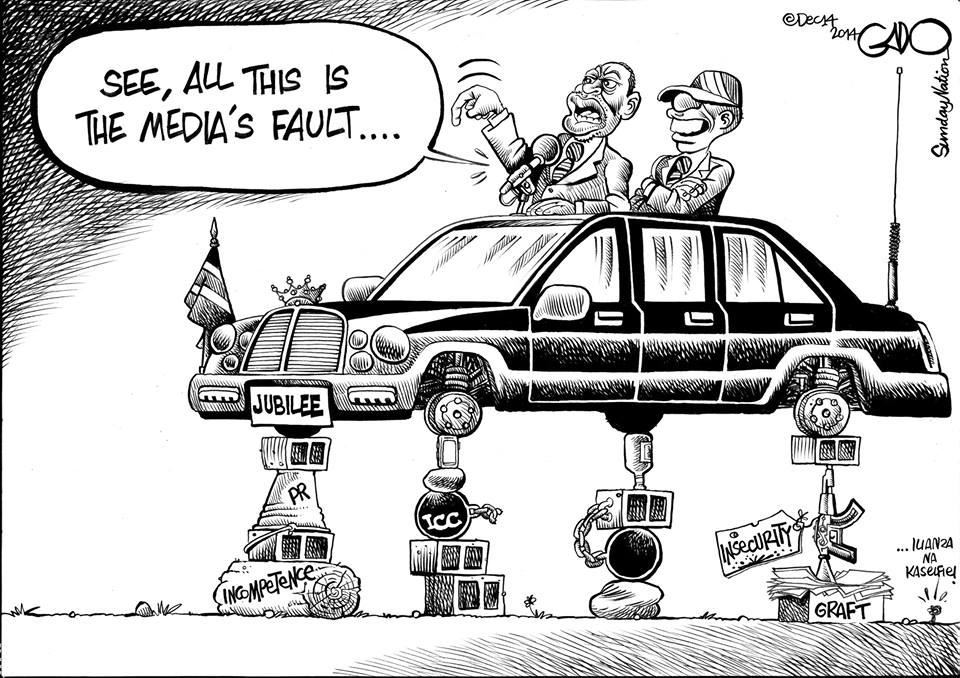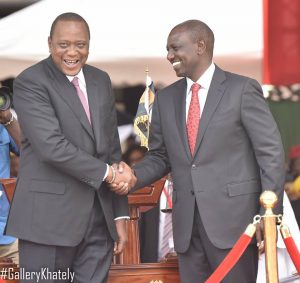It’s A Dog’s Life For Kenyan Journalists
Journalism is a calling. If you’re thinking of getting rich because of the sense of glamour that has been attached to some parts of it, I recommend you think again. Some of the socialites and bimbos you see on TV are not journalists, but entertainers — and the best they can do is read scripts written by the real journalists. News and investigative journalism in particular is a calling: long hours, crazy deadlines — most do it for the love of it because the pay is average.
The pen has always been mightier than the sword. That’s why a good investigative story will bring down corrupt officials without any need for weapons. Without journalism, the world as we know it would be a different place. Kenyan journalism has come from far — and played a critical role in democratizing the country. While subtle harassment continues, with occasional arbitrary arrests, the threat to journalism is more veiled than before.
Recently, a journalist working for Citizen TV was attacked by goons. That incident brought to the fore the challenges journalists go through as they try to report stories. The same week, an AFP photographer, Yasuyoshi Chiba, was arrested at a farm belonging to the Brookside Dairy company, which is owned by President Uhuru’s family. Harassment of journalists has been on the rise since August 8 election. Journalists have been targeted in Nairobi and Kisumu by police for documenting brutality. Cameras were broken and their memory cards confiscated by the police. At least 10 attacks were documented by the Committee to Protect Journalists. The government responded by saying ‘the altercations’ between journalists and police happened, as they (police) tried to move reporters away from dangerous areas.
In today’s Kenya, journalists are fast losing their independence. Social media and the internet are already hurting newspaper readership and TV viewership. Meanwhile, the government and PR agencies lie in wait to punish any media house that publishes or airs stories they deem negative by with-
drawing adverts. The government has sometimes withheld payment owed to media houses as punishment for bold journalism.
It’s a harsh environment, where many journalists have turned away from their noble course of telling the truth, to join the bandwagon of spin-doctors. The spin doctors work for different government arms, every day trying to ‘fight’ stories. They will bribe their colleagues, blackmail or even threaten them if necessary. Our journalists have been vilified, but they have done a pretty good job — under very difficult circumstances. Some have lost their jobs for writing stories that upset media owners, advertisers and government.
Good journalism helps advance democracy and plays a role in keeping the government and the citizens accountable. Sadly, investigative stories are published, aired and Kenyans treat them like some soap opera. They create jokes and memes about the theft of public resources. Journalists put their lives at risk to expose the rot and the least we can do is to ensure something comes out of it. It’s the civic duty of citizens to demand accountability and transparency.
Let the stories give the citizens energy to demand better. You need to defend journalists when they get falsely accused, maligned. And don’t confuse paid bloggers and Twitter follow trains for journalists — those have an agenda, to make money, while journalism is a calling, to inform, empower and change society.




